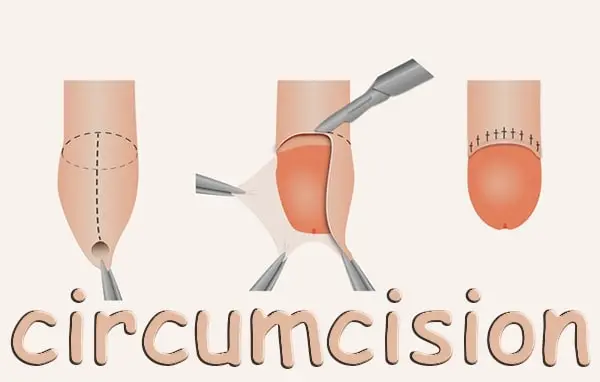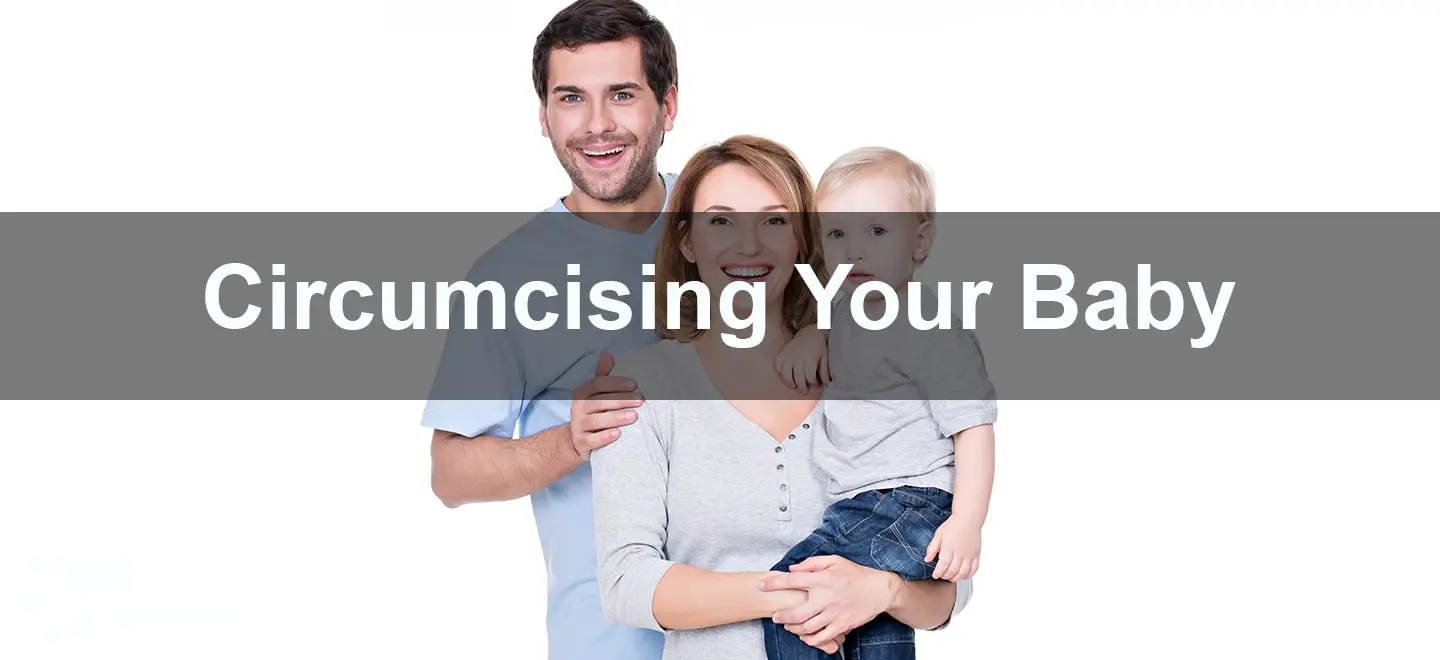Circumcising Your Baby
Circumcising Your Baby
Personal and Family Considerations
making a medical decision for a child is always a weighty undertaking. Deciding whether or not to circumcise your child carries the additional weight of controversy. Some believe it to be a matter-of-fact cultural or religious practice. For others, the decision is paying allegiance to tradition. Still, there are those for whom deciding to circumcise their child is a painstaking task in deliberating personal values and cultural taboos. These diverse motivations and concerns affect the way parents reflect upon the information available to them. If you are an expectant parent questioning whether or not to circumcise your child, it is important to be aware of your own motivations as these can deeply influence your final decision. For those who have already decided against circumcision, a thorough understanding of the material available can either provide confirmation and reassurance of the decision or lead to reconsideration based on a deeper appreciation for the complexity of issues involved. An extensive assessment of one’s personal values and potential influences upon a decision to circumcise is not likely feasible within the time constraints of obstetric and post-partum hospital stays. It is a good idea for expectant parents to gauge their feelings by initially seeking general information about what exactly circumcision is, its origins, and the implications which can be obtained. If your own cultural tradition dictates that circumcision is normal practice, be aware that perceptions of what is normal can vary greatly across cultures and change with time. Considering today’s ethnic diversity in America, there are numerous families for whom a given cultural tradition in a country of origin is quite out of sync with the patterns and practices of the mainstream American culture. A clear understanding of the medical facts about circumcision and the reasons why it is or is not a common practice can serve those who are of divergent cultural relativities to make a more informed decision based on the relevance circumcision has to their own family and cultural identity.
The Truth About Health and Circumcision
Still in the US, circumcision is being linked to the prevention of sexually transmitted infections including HIV. It is a complete fallacy to assume that African trials which reported a positive effect of circumcision on HIV can be applied to a Western situation. The African trials were carried out on adults and the evidence is not applicable to neonatal circumcision. What’s more, safe sex practices are much more effective in preventing sexually transmitted infections and teaching these will have a more positive effect on the future sexual health of a boy. It is wrong to assume that a parent’s values can predict the sexual behavior of their infant in later life, and it is not ethically their right to make decisions for their child’s potential sexual partners. The idea that circumcision has health benefits certainly persists. Most, if not all, of the evidence for any such benefits comes from studies carried out in the US. The most commonly reported is that circumcision protects against urinary tract infections (UTIs). The risk of a UTI in boys is already low, and mostly develops in the first year of life. Circumcision at this stage is a traumatic experience for an infant and is not justified by the relatively small decrease in risk of a UTI. Furthermore, UTIs are easily treatable with antibiotics and have no long-term adverse effects.

Decided to Circumcise : What to Know
The proportions of circumcised men increase steadily with decade of birth (84% among men born in the 1930s and 1990s). This suggests that the parents of today’s young boys are keenly aware of all the information that can matter in making an ethically based decision about elective surgery on a newborn. It is often not realized that decisions to accept or decline elective medical procedures are just that – parenting decisions made with partial information in the context of many value judgments and considerable uncertainty about the health, social and financial consequences of each alternative. Information and advice from medical practitioners are important. The chance that the son will be glad his parents made the decision he tern years later can only be estimated, but the hoped-for future gratitude does influence many present choices about childhood education and activities. Success in obtaining accurate and unbiased information on the medical pros and cons of circumcision will therefore depend on parents’ acceptance of risk and their weighing of costs as well as their concern for possible sex-related complications. With a background of wide-ranging values and motivations, circumcision decisions cannot be forced into a simple rational choice framework. But parents who understand the reasons why they are seeking particular information and who can compare it with their pre-existing beliefs and information will achieve decision outcomes that are closer to their preferences. Cognitive tools that expedite literacy in medical decision-making and aid the process of informed consent can be employed by individuals to varying degrees. Relevant information can differ between individuals depending on personal characteristics and the decisions at hand. It may be acquired on one’s own initiative or it may be thrust upon one as ‘education’, ‘advice’ or ‘marketing’.
People often begin their search for health-maintenance information when life events reveal a previously unsuspected threat to the established state of good health. With birth of a male child, the information value of the parents’ own circumcision experience will exceed that of any other single factor on the social history, medical advice and masses of objective information available on circumcision. Cognitive heuristics (rules of thumb) such as ‘I turned out OK, so why take the risk?’ are likely to prevail unless information retrieval is spontaneously extended to assess the known advantages and risks for today’s circumcised and non-circumcised males. With any statistical information comparison of present and possible future states of health, it is essential that parents realize the uncertain nature of their predictions for an individual and weigh the probabilities of various health outcomes in light of their concerns and preferences for treatment of particular conditions. The extent to which desired information can be obtained and the balance of benefits and self-perceived costs will have a significant influence on the final decision for parents who hope to make a decision that is truly in the best interests of their son.

